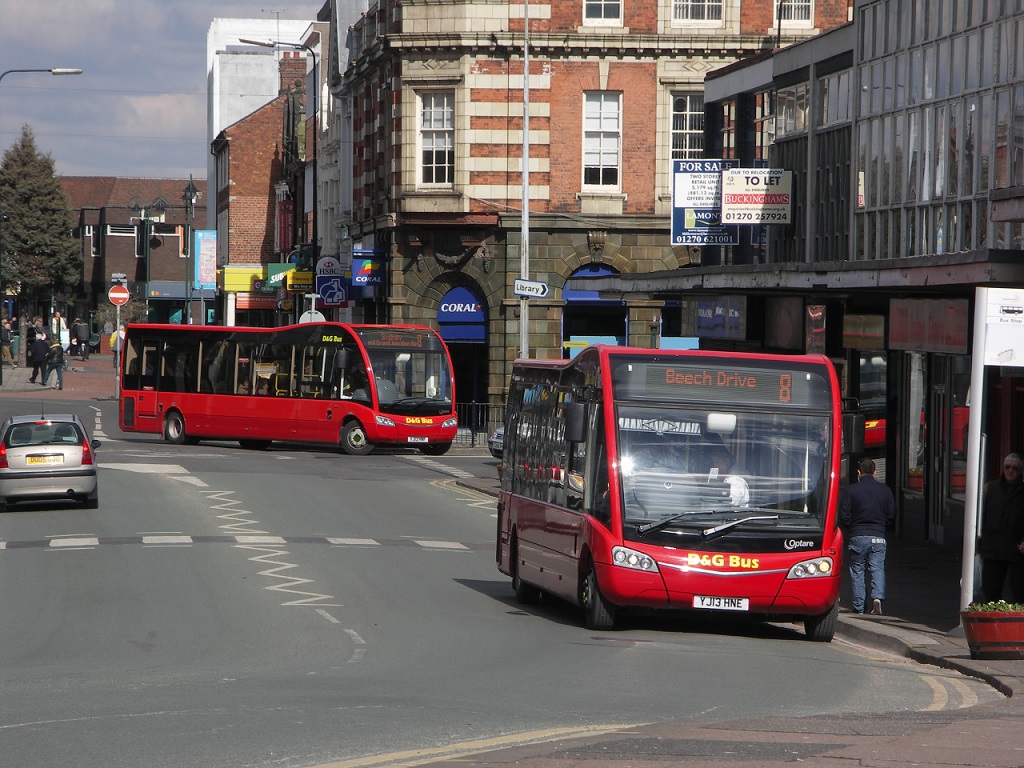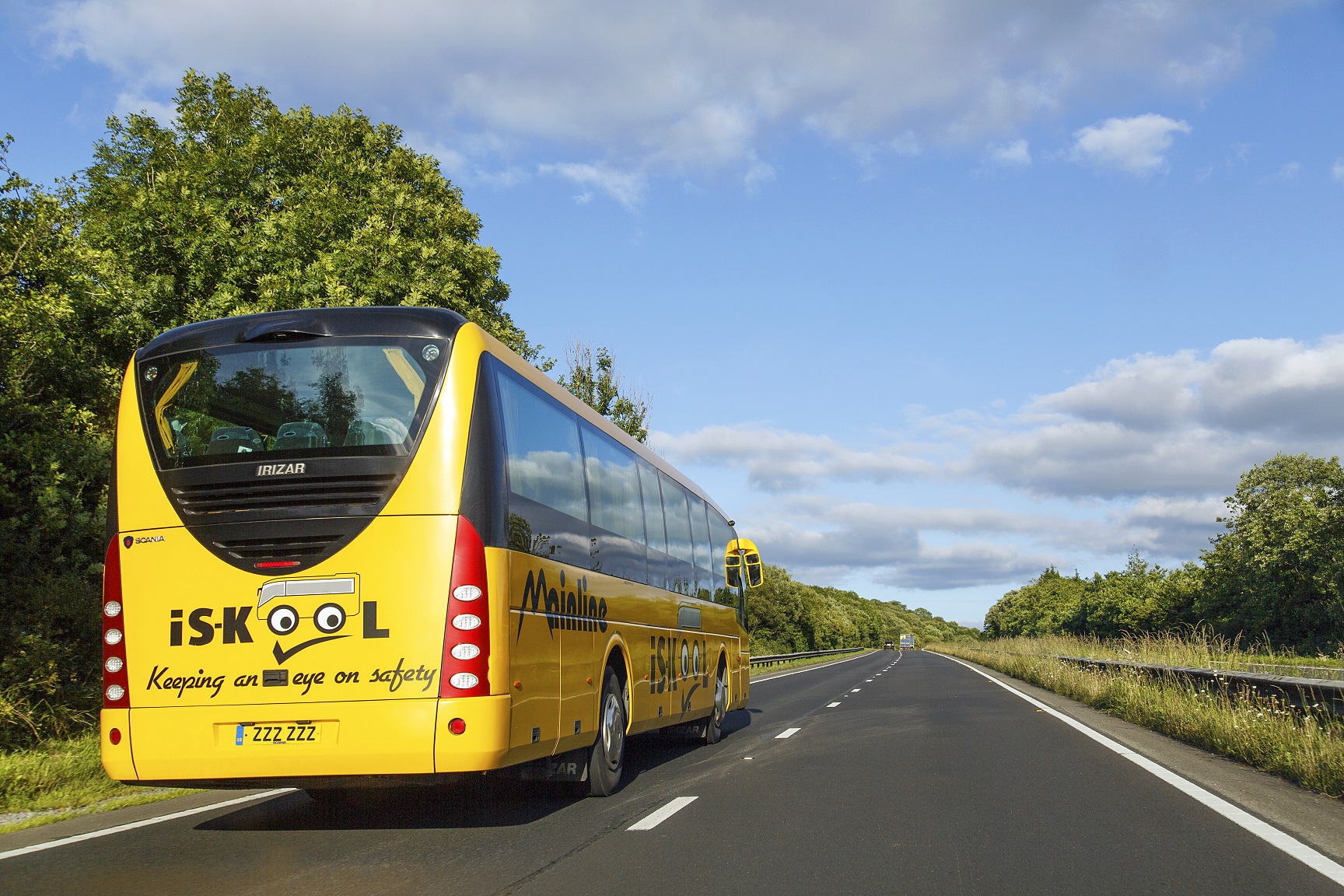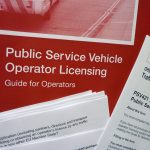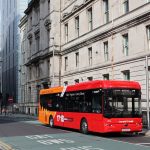The arrival of six single-deck electric buses marks the ongoing commitment by Birmingham Airport to carbon neutrality by 2033
Birmingham Airport (BHX) has launched an electric bus fleet to replace its diesel vehicles in what is believed to be the first pantograph-charged landside electric bus service introduced to any UK airport.
Six new 12m single-deck Volvo 7900 Electric buses, which advertise an energy saving of 80% when compared with the airport’s previous fleet, will provide a 24hr service collecting airline passengers from the site’s long-stay car parks.
It follows an investment of £1.8m by the airport and a further £1.4m grant from the DfT’s Ultra Low Emission bus scheme.
Their introduction comes as part of a wider commitment by BHX, announced on 4 November, to become a net zero carbon airport by 2033 – 17 years ahead of the UK’s national target.
Tailored solution
To ensure continuous 24hr operation, rapid charging is offered via two pantographs positioned outside the terminal during passenger boarding and alighting using Volvo’s opportunity charging system, OppCharge.
This is done via roof-mounted charging rails above the front axle, which supply electricity to four water-cooled nickel manganese cobalt 50kW/h batteries (totalling 200kW/h battery capacity). These are interchangeable in line with a battery maintenance contract with Volvo. Top up can be achieved in six minutes. Plug-in charging is also located at the front of the vehicle.
Driving the bus is a 160Kw electric motor delivering 400Nm of torque, which doubles as a retarder to recover energy during braking.
routeone spoke to CEO of Birmingham Airport Nick Barton regarding the decision behind electric and overhead charging as the right solution for BHX.
“Airports have an integral link with the carbon debate and we need to make sure we are doing our bit,” explains Mr Barton.
“We looked at it from a local level – at what was available and what meets our expectations. The conclusion emphatically is that what we’ve chosen is the best solution.”
Converting the landside bus fleet was one of the first aims of a 2016 carbon reduction strategy. In 2018, the tender process was initiated, and Volvo was selected as the partner. “Our requirement schedules fit with its product the best,” Mr Barton adds.
The decision to move to electric fits in with further environmental protection initiatives, such as water course protection, air quality monitoring and noise reduction. Says Mr Barton: “For us as an operation, we set a challenge of 2033 on our net carbon position. Our master plan for the airport’s growth was set over a 15-year period, between 2018 and 2033.
“One of the key issues about delivering this target was stretching it. We didn’t pick 2050, or even 2040, as I felt that would make zero carbon somebody else’s problem. We will perform a lot better in our carbon reduction goals with this schedule than with a pedestrian target – and it sets a standard for other airports to follow.”
Currently, the longest of the bus routes is 7km, with the vehicles completing an average annual mileage of around 30,000km. BHX Interim Fleet Manager Andy McDarmaid explains the troubles with the old diesel fleet, and why hybrid was not a solution: “The diesel vehicles suffered problems with their DPFs, as they typically did not reach speeds above 40mph.
“We had to identify whether hybrid or electric was the right product. We determined hybrid wouldn’t work due to the distance between stops, which are too close. We would be running pure diesel vehicles in that instance.”
The vehicles are to be operated on a 15-year working life with a payback time of between seven and eight years, adds Mr McDarmaid.
Not just an airport
Further growth of BHX will come precipitated by its Hs2 link at Interchange station, due for completion in 2026. The architecture of the pantograph chargers is open for use by other operators. According to Mr McDarmaid, there are currently 400 coach and bus movements at BHX every 24 hours, half of which come from public buses or coaches using the site as a transport interchange.
As a result, the airport will offer charging solutions for other operators, in order to remove barriers to electric vehicle use. This will incur a cost, though due to the early adoption of the technology a tariff is yet to be determined. Mr McDarmaid says discussions with Transport for West Midlands will factor in the cost of electricity and contribution towards maintenance, as opposed to being a profit generator.
Two 100kW CCS Combo 2 chargers in the airport’s coach park, also provided by Volvo Buses, complement the pantographs. They are hoped to encourage further growth in electric vehicle use.


























